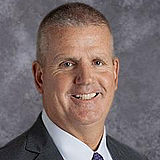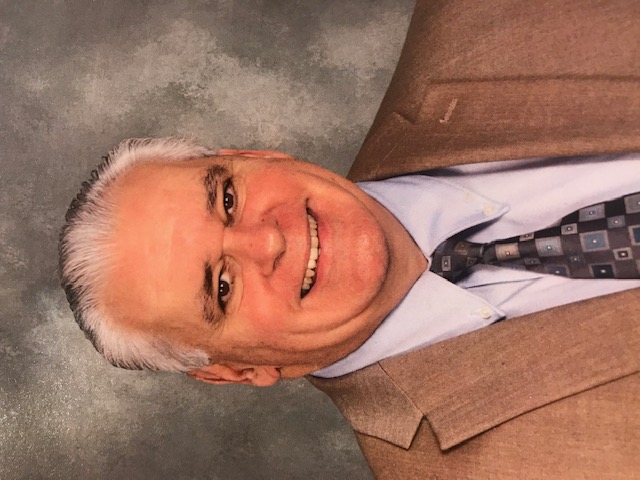The story of, “Joe and Joe”
A principal’s world is full of demands, deadlines and myriad daily stress inducing challenges and distractions. For too long, the expectation has been to “grin and bear it”, with little thought to the potential and significant negative personal and professional consequences.
Travis Meadows, the songwriter of, “Better Boat”, offers some simple but powerful wisdom: “Serenity is not found in a calmer sea. It’s found in the building of a better boat.” We are determined to become the, “Better Boat”, built each day in the tempest of our many and varied professional responsibilities. During the tidal flow there is a short period of time called the “Slack Tide”, when the water is completely unstressed and still and there is no movement either way in the tidal flow. From this stillness begins the journey of The Mindful Principal.
In the all too often frantic pace of today’s principalship, we have discovered a way to slow down, breathe, focus, remain calm under stress and change how we relate to our experiences; to respond instead of react; a way to improve and enhance the ability to listen, empathize, problem solve, motivate, support, encourage and inspire teachers and staff. In short, a genuine and practical way to continue to grow personally and professionally as a school leader. That way is the practice of mindfulness.
Our interest in mindfulness and positive psychology began well over a decade ago. We became determined to learn about mindfulness and apply it in our lives and to influence and enhance our positive impact as school leaders.
Our daily telephone conversations on the way to our respective schools quickly led us into the practice of mindfulness and the importance and positive impact of present moment awareness. We began with researching, reading about and discussing mindfulness and positive psychology. We celebrated and welcomed the advent of the long overdue recognition of the critical importance of social and emotional learning as a foundation for student growth and success. We were then fortunate enough to attend an eight week Mindfulness Based Stress Reduction Course at The Krame Center for Mindful Living. After many years of our own research, practice, and attending workshops, the experience at the Krame Center inspired our appreciation of the many benefits of mindfulness practices. The Krame Center is a remarkable organization and their work is a gift to the world.
This training established our personal mindfulness practice and fully prepared us to begin our journey of bringing mindful practices to our schools; first to our teachers and staff for their own understanding and health and wellness and then to our students to teach them, through practice, the social emotional competencies of self-awareness, self-management, social awareness, relationship skills and responsible decision-making.
What is Mindfulness?
Mindfulness is being aware of our thoughts and feelings in the present moment in a gentle, accepting, non-judgmental way. Mindful practices help us change our perspective in how we relate to our experiences and serve to free us from the all-too-common ruminating about the past or worrying about the future. The practice of mindfulness builds our capacity for awareness, increases our ability to be truly present, “Right Here, Right Now”, and helps silence the loud, inner, judgmental voices that can dominate our thinking, especially under stressful situations.
As principals, our ability to listen, problem solve, and collaborate, hinges on our ability to create positive and productive relationships, first with ourselves, and then with our teachers, staff, students, parents and school community.
Mindfulness and Improving Principal Leadership
Do mindful practices improve leadership abilities? Scholarly research finds that mindfulness practices improve interpersonal relationships, decreases stress and anxiety, increases attention, and strengthens compassion. In addition, many studies have documented the physical and mental health benefits of mindfulness in schools throughout the world, as well as in Fortune 500 companies (General Mills, Goldman Sachs, Google, Apple, and Nike) professional sports teams (Seattle Seahawks, Chicago Cubs, Golden State Warriors) and the United States Military (Navy Seals, U.S. Marine Corps).
As reported in The Harvard Business Review, a survey of 2,000 employees conducted by Bain & Company, a global management consulting firm, found that among 33 leadership traits including: creating compelling objectives, expressing ideas clearly, and being receptive to input, the ability to be mindfully present is the most essential of all. As part of the research for their book entitled, “The Mind of the Leader”, Rasmus Hougaard and Jacqueline Carter surveyed more than 1,000 leaders who indicated that a more mindful presence is the optimal strategy to engage their people, create better connections, and improve performance.
Practices for the Mindful Principal:
- Mindful Breathing: Rather than, “hitting the ground running”, a mindful approach to the start of your day can change the whole tone of your day. Here is a simple, practical, and powerful way to begin your day with mindfulness:
- Start by sitting comfortably and taking a few relaxing deep breaths.
- Consciously notice and relax any areas of tension in your body.
- Focus your attention on your breath as you breathe in and out naturally, simply observing the rising and falling of your belly or noticing the coolness of the air as you breathe in through your nose.
- When your mind wanders, and it will, simply notice and acknowledge it and gently return to focusing on your breathing. Some people find that counting their breaths (counting every out-breath up to ten and then repeating the process in reverse) helps with focusing on the breath.
- Set Positive Intentions: Consciously choose at least three specific intentions for your day each morning to calibrate your compass in a positive and meaningful direction.
- Practice Mindful Listening: In order to best understand the needs of your teachers and staff, you have to be in the present moment. Practice actively listening without judgment, and without trying to formulate what you are going to say in response.
- Take a Mindful Walk: As you walk around your building, be fully present and aware of bulletin boards, student work, students and teachers, and the sounds emanating from classrooms.
- Gratitude Journal: At the end of your day write down at least three things you are grateful for from your day or your life in general. There are social, psychological, and physical health benefits from writing down what you are thankful for each day.
We have experienced, first-hand, the significant benefits of mindful practices, both personally and professionally. As we set sail and navigate the constant challenges we encounter during the ebb and flow of our days, it is critically important to take the time to experience the stillness that mindful practices provide.
Mindfulness allows us to respond versus react, listen actively to those we lead and demonstrate through our thoughtful attention that we are committed to bringing out the best in them and are encouraging them to bringing out the best in others. As we all strive to build our, “Better Boats”, we invite you to let mindfulness be your first port of call on the voyage of, “The Mindful Principal”. Recognize the power of the present moment and make the decision to set sail, “Right Here, Right Now” . . .
Hougaard, R., & Carter, J. (2018). The Mind of the Leader: How to Lead Yourself, Your People, and Your Organization for Extraordinary Results. Brighton, MA: Harvard Business Press.
Wasserman, N. (2008). The Founder’s Dilemma. Harvard Business Review, 86(2), 102-109.


Daily mindful practices have enhanced their leadership skills and joy at work in their roles as school leaders.

